We continue our on-going series of interviews featuring spectacular filmmakers with this second video of creative director and independent filmmaker, Federico Ponce, as he explains what it means to him to be a director.
Growing up in Mexico, Federico is also able to share some interesting thoughts on the reason behind the creativity and success of current Mexican filmmakers. Enjoy!
Stay tuned for more from Federico. Upcoming videos include “How Do You Create Opportunities For Yourself”, “What Is Motion Graphics”, “Why Create A Graphic Novel For Your Movie” and many more.
About Federico Ponce:
Federico Ponce may not yet be a household name outside a tight-knit Motion Graphics circle in Los Angeles, but chances are you know his work nevertheless. As a visual artist and creative director, he has designed the title art for movies like Avengers, Thor, Iron Man, District 9, The Twilight Saga and many more. He has also designed a handful of your favorite movie trailers and directed numerous commercials. And now he’s working on his narrative directorial debut, “Sebastian: The Slumberland Odyssey” – all of which he’ll be telling you more about in the videos we’ll be posting over the next couple of weeks.
Let us know in the comments what you think. And learn more about Federico’s work here.
For those of you who like reading, rather than watching, here’s the transcription of “How Do You Find Work as a Freelancer?”
Federico: Being a director is sort of a loaded question, especially living in LA, you know, like, “Oh – director,” but I don’t, I rather think of myself as a storyteller. And I think that for me the way this has evolved internally is that, I’ve always been a storyteller, but I think a director is someone that has a story to tell and has a very particular way of telling a story.
Federico: Personally, I’d say that a director is not a director. He’s a community builder. You are basically building a community of people around an idea. And my job is to figure out what talented group of people I’m going to bring into this, how I’m going to make my passion contagious and show them what is it that I want to say so that they become passionate about it, too, and then how do I bring out the best in these people so that we can all work together and make something that otherwise could not be made by one person? I think that that’s sort of what’s been evolving, you know, like the notion of like, “Oh, I can do something on my own that’s pretty cool,” versus now, like, “I’m going to generate and create a whole community that supports this idea and that feels passionate about it.”
Federico: I don’t think that there’s a lot of creative people that join a movie and say, “Oh, it was a shitty movie. I didn’t like it.” I mean, yeah, there are those situations, but I think that most people that join the project are excited about it and part of the director of the storytelling is building that community, and building it on a virtualist platform. Meaning, try to create an environment that brings out the best in people so that everybody there is challenged, everybody there is always trying to give their best to create that project.
Federico: So, it’s weird, you know? It’s a weird thing, like I have that and I think that that, you know, you have that idea, you have that passion, you have a vision, I think you need tenacity, I think you need to be tenacious. I think you need to be – it’s a very strange combination of being sort of like a gentle captain of a ship. You’re willing to listen and of course you’re willing to change, but you won’t because you have a direction.
Federico: It’s not that you won’t because of your ego, but it’s like you know where you want to go. And then you’ve just got to get there. Maybe somebody has an idea, better idea of how to get there and you’ll listen to that, of course. It would be silly not to. But I think that that tenaciousness and that daring, that you know, I’m going to do something that I know I want to do. It’s going to be tough, it might not work. It’s a risk. But I’m going to do it and I’m going to muster my courage and make sure that everybody’s inspired and we can do it. And that’s how great things get done.
Federico: I’m not saying I’ve done great things, because I haven’t. I don’t have anything, okay? I’m just starting with this thing and, but what I want to say is that when I say “great things get made” I meant like internally. You’re internal creative process, not the external product.
Federico: Which brings me to a real interesting question, you know. Why are Mexican directors right now winning so many awards? I mean, you have Amat Escalante with “Heli” who won the Cannes award last year, I believe. You have Cuarón, Iñárritu and del Toro and even though del Toro hasn’t won like an award, he’s definitely on the forefront of fantasy and technology and storytelling in his own right.
Federico: So why are these Mexican directors being so successful? And it’s not a random thing. It’s definitely not a random thing. It’s a few elements and I think we can all learn a lot from these elements.
Federico: Number one is that in Mexico, there has been a program of incentives, film incentives, and it’s been very successful. I mean, there are like I think a hundred movies being made in Mexico right now. In comparison to Hollywood it’s nothing, right, but in a country where there was only one or two every five years, a hundred a year is pretty damn good.
Federico: There’s a lot of schools, there is a lot of, you know, if you put the money into it, you will get something out of it. And the government has put the money into it and they’re getting stuff out of it. The difference I think is that there’s not a capitalist approach in there. It’s not like, we’re going to put the money into it and we want the investment back. It’s never about that, which is great. Because it lets people be a little bit more creative, it’s let people be a little bit more risky. And you have to fight for that money. You have to fight for those grants, you know, you have to prove that you’re project is good.
Federico: And obviously it’s not like a perfect system, it has its issues. But at the core, nobody’s expecting a blockbuster hit and that’s the difference is that there’s a system that is encouraging people to be creative. That’s fairly new, okay, so that’s why I think all these new authors are sort of becoming more and more famous, Mexican authors and directors. With Iñárritu and del Toro and Cuarón is that these guys, first of all they’re friends, right, they’re really good friends, they work together and it’s, you know, if you have three very powerful minds and you, they’re collaborating, of course they’re going to create amazing things.
Federico: I do not know to what degree they’re collaborating, but they’re certainly, you know, they’re very close, little things that I know. And I think what happens is they encourage each other, they talk, you know, but they also come from this school of trying out new things.
Federico: Now, if you think about why are they so successful? Let’s really break down why they’re successful and why they’re who they are, because it’s very apparent, it’s very simple. Number one, the “Pan’s Labyrinth.” Why was “Pan’s Labyrinth” such a huge hit? It was visually stunning, it was great storytelling, but, imagine this pitch for a second. “I’m going to tell you a children’s story, a fantasy story, about death and a Spanish war,” you know, civil war. I forget which war it was, but and I apologize.
Federico: That sounds horrible. Who would watch that? You know, it’s, and then you watch the movie and it’s a very powerful movie. It works. It’s not for kids. It is definitely not for kids. But it’s a fantasy and the main protagonist is a kid. See, that’s very risky. That’s very risky. That’s very on the edge, you know, and so if you go out there, you pitch something crazy like that and you execute it with the masterful execution that it was executed as and of course you’re going to get a huge hit, right? So that’s number one.
Federico: Another example, because they have plenty. I mean, these guys are brilliant, right? But let’s take another example. Let’s take “Gravity.” You go to a studio and you tell them, “I’m going to film a movie, you’re not going to see any of the movie for four or five years. And then I’m just going to release it.” Right? “And it’s going to be about one actress.” That’s – can I say that works? That’s fucking crazy. That’s insane. And it’s going to cost, you know, $100 million or whatever it cost.
Federico: Would you do that if I said, “Hey, give me $100 million. I’m going to make a move that you’re not going be able to see how it’s going to look like.” Would you do that? I mean, it’s crazy, right? So he goes in there and he pushes the levels of technology. I mean, the technology that went into this movie it was insane, right? Not only that, but the storytelling is pretty good, too. I mean, this is a human story about loss and attachment and emotional attachment and overcoming something powerful and the metaphors for these are space. You know, this giant space which is in truth the inner space.
Federico: So, you know, you put those marvelous things together again and you take a risk. You take a very, very powerful risk. And you throw it out there and you do it.
Federico: Now let’s go to “Birdman.” Last one. Right? I love people that, a lot of my friends that saw it they were like, “Augh, it was, I didn’t like that movie. It was crazy. I mean, oh, it was good, but it wasn’t like Oscar worthy.” Here’s my take on it. I think “Birdman” was a brilliant movie, okay? It was brilliant because the technical feat that Ed Cheeble, the VP did, the colorist and the editor and the ed director. That technical feat of stringing a moving like that is incredible, right? But it’s not a gimmick. That’s the key, is that they don’t do that because it was hard, or because it was a gimmick, at least this is my opinion, right, they did that because that was integral part of the story.
Federico: That was the way the main character experienced life, as this continuous rambling jazzy tune. And that’s why they have a jazz score in it because it’s this guy’s brain. That’s his brain. They’re giving you an insight into his brain and they’re using all these film techniques, pushing them to the limit, collaborating like crazy in creating this piece of art. So that’s one part of it, right?
Federico: And then the other part of “Birdman” that’s incredible is like, okay, “I’m going to make a surreal magical piece about this guy’s inner journey where he’s moving things with his mind and he’s levitating.” That sound really strange, right, like that sounds like fantasy. That sounds like something that’s out of genre, but it’s not. It’s perfect. And this idea of this magical realism that goes back to Gabriel García Márquez and you know, the Latin American writers and the “Las Historias el Don Juan” and all these stories about magical realism.
Federico: And they sort of took all that and modernized it and brought it to storytelling, man, I mean, this is powerful stuff. This is the thing, it’s like people say, like, “They’re famous because of their Mexican heritage.” I think that’s wrong. I think they’re really fucking successful because they took the elements from the culture and they made it into a global language. And that’s powerful stuff. And they didn’t do it by commercializing it, they did it by interpreting it in a much more open space. Does that make sense? Like, you know, that magical realism, they put it into really strong and powerful adult context and it works. It works really well. That movie is brilliant. That movie is really good. The script is phenomenal the acting is superb. I mean, to be the captain on that ship, man, and deal, just imagine the mentality of the director, right? He has to deal the technical part of it, he has this amazing team, he has to deal with the actor, I mean, he’s always moving pieces and stringing it out the way, and there’s the other thing. He did the movie that he wanted. He did what he wanted.
Federico: When del Toro, “Pan’s Labyrinth,” he did that movie because that was his passion project. When Cuarón made “Gravity” that was his passion project. He wanted to work on that. So you see, the key is risk, passion, intelligence and collaboration. That’s why these guys are incredible.

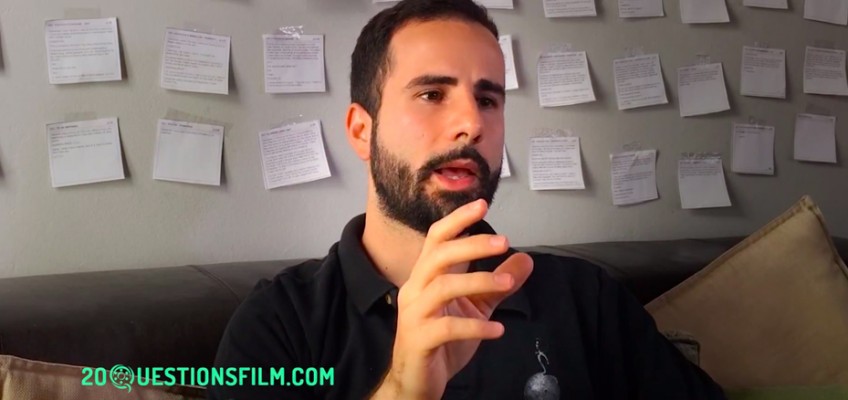


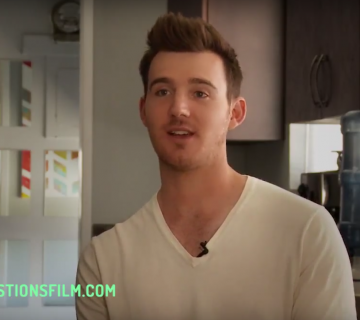
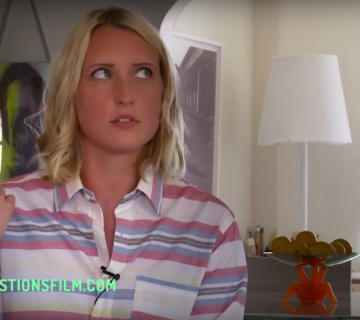
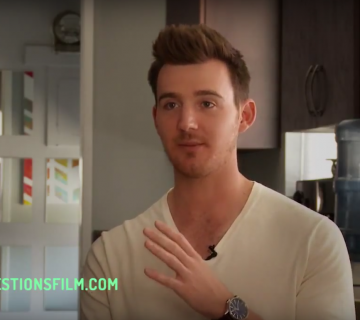
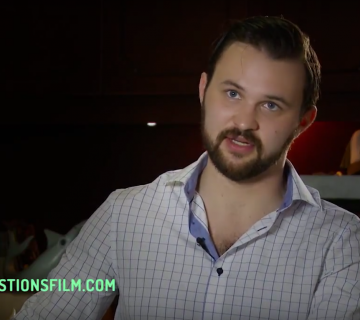

Join the Conversation →